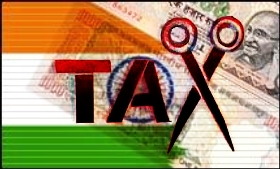|
|
|

|
Taxes, prices and restructurings: Moving ahead in the times of corona
|
|

|
|
| Top Stories |
 |
|
|
|
TAPONEEL MUKHERJEE | 24 May, 2020
As economies slowly open across the globe, the ramifications of the
coronavirus pandemic on global trade and geopolitics are gradually
playing out. Amid rapidly evolving global trade dynamics, India's focus
on attracting manufacturing firms to India is a step in the right
direction. That said, an area of even greater focus for India must be on
freeing up capital flows in the economy. Essentially, while targetted
focus on attracting manufacturing businesses to India is commendable,
creating an environment that allows greater and smoother capital flow
must form the core underpinning for India to generate economic growth
not just in the near future but for the coming decade.
As with
corona affected countries, India needs first to ensure that businesses
can recover from the exogenous shock. In the long-run India requires to
provide capital for both consumer and infrastructure businesses to
expand. While the economic package announced by the Honourable Finance
Minister has addressed some of the issues businesses face today, going
forward further steps detailed below will significantly assist in
generating growth and prosperity.
India will have to take a long
hard look at the indirect tax rates in the economy. Reducing indirect
tax rates in the face of a lower pandemic induced tax collection is
challenging, however, a lower and simplified tax regime in the indirect
tax space will have to come sooner than later to provide businesses with
the boost they need to capture a higher component of the demand by
passing through the tax cuts. Lower indirect taxes would aid businesses
of all sizes and more importantly provide enterprises access to the
excess capital needed to tide over issues and manage a period of low
demand and supply-side shocks.
Boosting capital flow will also
require the policymakers to allow market pricing where possible.
Avoiding price controls, unless necessary, will be essential to create
an environment whereby capital is encouraged to seek attractive
risk-adjusted opportunities. Keeping price-controls to a minimum is
vital not just to make Indian investment opportunities attractive for
foreign capital but also for domestic capital.
Mainly, the
ramifications of price controls must be carefully viewed if they were to
make sectors unattractive from an investment perspective. A lot of the
growth and investments that India received post the 1991 liberalisation
was on the back of allowing markets to determine the price, thereby
ensuring investors that capital deployment would accept a
market-determined return. Lessons from history must be kept in mind as
we move ahead. Additionally, the extension of the moratorium for loan
payments by the Reserve Bank of India (RBI) is a welcome step that will
allow people some breathing space as the economy stabilises.
That
said, a mechanism that will enable for restructuring credit portfolios
and loan books post the moratorium period is vital to ensure that
adverse credit situations can be deftly sorted. That loan defaults will
pick up in a tight credit cycle due to the corona induced slowdown is a
given. The issues must be dealt with quickly to ensure that the
contagion effect of a weak credit market is avoided.
The need to
resolve credit issues is vital since the credit markets stand on a
structure of asset-liabilities implying that the primary role of
financial institutions that lend is that of an intermediary. Therefore,
if an individual is unable to service their home loan, there could be a
depositor with an NBFC or a wholesale lender that will eventually have
to take a haircut on their investment return from their loan portfolio.
While in a tight credit market, such situations will arise and must be
understood to be a natural concomitant of credit markets, quickly
resolving the issues assumes great importance.
Resolving credit
issues is even more important when one looks at how important the credit
markets have been towards the growth of housing, vehicle ownership and
consumer goods ownership in the country. Well-functioning credit markets
are needed to ensure that more and more consumers can get access to
credit at attractive rates, thereby creating a virtuous cycle. The
coronavirus induced slowdown has provided us with an opportunity to
expedite reforms that can truly unleash the real potential of India.
Given both the infrastructure financing needs that India has in the
decades to come and a young population that can potentially power a mega
consumer-driven economy, allowing businesses to flourish will be
crucial.
|
|
|
| |
|
|
|
|
|
|
|
|
|
|
|
|
|
|
| |
| Customs Exchange Rates |
| Currency |
Import |
Export |
US Dollar
|
84.35
|
82.60 |
UK Pound
|
106.35
|
102.90 |
Euro
|
92.50
|
89.35 |
| Japanese
Yen |
55.05 |
53.40 |
| As on 12 Oct, 2024 |
|
|
| Daily Poll |
 |
 |
| Do you think Indian businesses will be negatively affected by Trump's America First Policy? |
|
|
|
|
|
| Commented Stories |
 |
|
|
|
|
|
| |
|